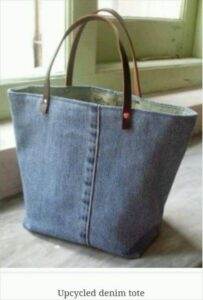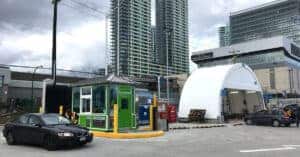It’s that time of year again – spring cleaning. As we Vancouverites put our snow shovels away we can finally begin to think about clearing the junk from our homes. We can once again freshen our homes after a long winter. This year, we propose a challenge: to make your spring cleaning efforts zero-waste.
You might be scratching your head: how do I do that? Is it even possible?
We’re here to say yes, that it’s possible to avoid throwing your old junk in the garbage. We think it’s possible to tackle your waste differently, to find a new use for them or find someone else who can take it off your hands.
Why we should make our spring-cleaning zero waste?
As news about landfill waste, plastics pollution, and packaging waste become publicized, and we move towards reducing our environmental footprint, why not do the same for spring cleaning? Most people throw away their junk, like old chairs, furniture, mattresses, and odds-and-ends, into landfills, but what if there are cheap, fun ways to recycle or repurpose your items? After all, a trip to the local landfill can be quite expensive. So take advantage of these five tips to turn your spring cleaning into a zero-waste activity:
Tip 1: Ask your friends, families, or neighbours.
Before you throw away your chairs, sofas, tables, or home decor, why not ask people you know if they have a use for them? With the ease of social media these days, simply posting a photo of your furniture or item in local buy and sell groups can lead to a successful connection. You never know who may be looking for an item that you are looking to throw away! As the saying goes: one person’s trash is another one’s treasure.
Many times people are looking for cheap furniture or used furniture that adds character to their existing decor.
Additional suggestion: take a creative photo of your item to show how people can use it. This can help increase the interest in your item. If you have a lawnmower to throw away, maybe place it on your lawn and take a photo. This will look better than a grainy photo of a lawnmower taken inside a cluttered garage.
Tip 2: Host a zero-waste repurposing party with your friends.
This is a fun activity for adults or even for families with young children. Host a zero waste party or an upcycling crafts night where you turn empty containers, tea tins, and jars into new, stylish stationary holders.

Repurpose old jars with a fresh coat of paint instead of throwing them in the garbage. (Source)
Maybe even turn old fabrics and bedsheets into a tote bag. Make bandanas, head scarfs, or even beach towels using old fabrics, or tie-dye them to create brilliant colour schemes.

Save old t-shirts and jeans and turn them into stylish tote bags. (Source)
Other ideas include stripping down wood from mattress boards and cut-offs to repaint them into home decor signs. The benefit of finding out how you can upcycle your own items is learning a new skill or technique. Sometimes simply refitting or brushing up an old item will make it last longer, and brighten up your home. This way, you can keep your items out of landfills and find another use for them, while having fun!
Recommended Article: How to introduce recycling to your children
Tip 3: Drop-off items at the Vancouver Zero Waste Centre.

Take your old items to the Vancouver Zero Waste Centre. (Image Credit)
Formerly the Recycling Centre, the City of Vancouver unveiled a new zero-waste facility last year. The facility encourages people to recycle items instead of dumping them in landfills. The best thing about this facility is that it’s free of charge for Vancouver residents. So come by and drop off old electronics, glass bottles, jars, household batteries and more. They hand the items off to a recycler or a repurposer, so that your item stays out of the landfill.
Unfortunately, the centre does not accept mattresses, propane tanks, and general garbage. Their website has more information on what they accept – and how you can get there.
Additional tip: if you make a trip out, ask your neighbours if they have things to recycle you can bring along. Saving a trip reduces air pollution and traffic conjestion.
Tip 4: Donate items to charity.
Donations tend to decrease after the Christmas season, so check your local charities to see if they’re running low on specific items. Toiletries, blankets, pillows, and clothes can be useful for these organizations. Think about donating items to a thrift store run by a charity. These organizations rely on sales through their stores for much of their work, so you’ll be contributing to a good cause.
Give your items a quick wash so they’re in good condition before you donate. Donating larger items such as mattresses and furniture may be difficult as most organizations reject them due to sanitary concerns. It may be easier to take your furniture and mattresses to a recycler instead. Doing your part to recycle helps keep the environment healthy and our society sustainable.
Tip 5: Host a community yard sale.

Hosting a yard sale can help keep your old furniture away from the landfill.
If you live in a condo or townhome with a strata, approach them or your neighbours to see if they are interested in hosting a community yard sale. If you have a detached home, you can also host a yard sale too and get your street involved. This can get more people attending the yard sale, especially when they know there are more than one household is hosting. You can even sell reusable bags, mason jars, and glass Tupperware so that people can get their hands on zero-waste items. A good tip when having a yard sale is to provide details about the product, as well as inspiration how shoppers can use them in their homes.
Before you put your items up for the yard sale, think about cleaning them and making them look nice and presentable. If you have items like extra jars or boxes, think about decorating them for an extra charming look. Selling an old piece of furniture or accent cabinet can be as easy as giving it a fresh coat of paint or a wipe-down with a warm, soapy cloth.
Recommended Article: Top 5 Environmentally Friendly Changes You Can Make
Bonus tip: Dump wood scraps or boards into your compost.
If you have clean wood lying around after a home renovation or a woodworking project, you can break the scraps down into smaller pieces and compost them. Many people don’t realize that clean, dry wood can be composted. So instead of leaving them on your lawn or taking them to the landfill, compost your wood scraps. If you don’t have a compost bin, this can be a great time to start one. Be sure to know what kinds of wood are compostable. Pressure-treated or painted wood cannot decompose easily and should be taken to an appropriate facility instead.
Do you have any other helpful zero-waste tips on spring cleaning? We covered items that are commonly thrown away, like large furniture, bedsheets, wood scraps, and jars and glasses, but there are countless of activities and ways to think about turning your activities into a zero-waste one. Share your ideas and tips with us on our Facebook Page and Twitter.
Canadian Mattress Recycling is a 100% locally-owned BC company with a team of employees dedicated to customer service and environmental preservation through recycling. We are located in the middle of Metro Vancouver on Annacis Island on Delta, BC and serve the entire Lower Mainland region and beyond. We are winners of the Green Business of the Year in 2016 by the Delta Chamber of Commerce.

